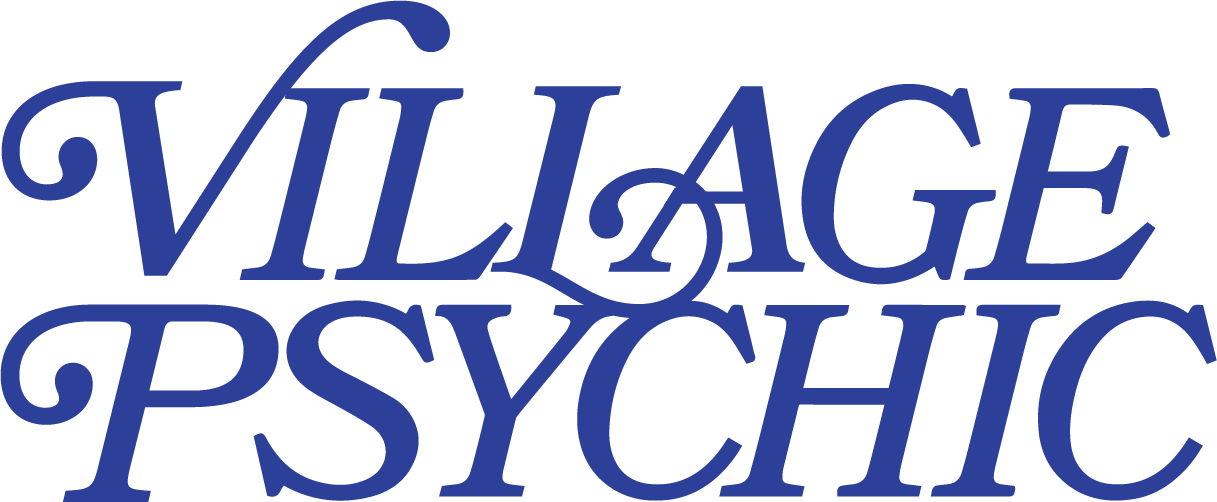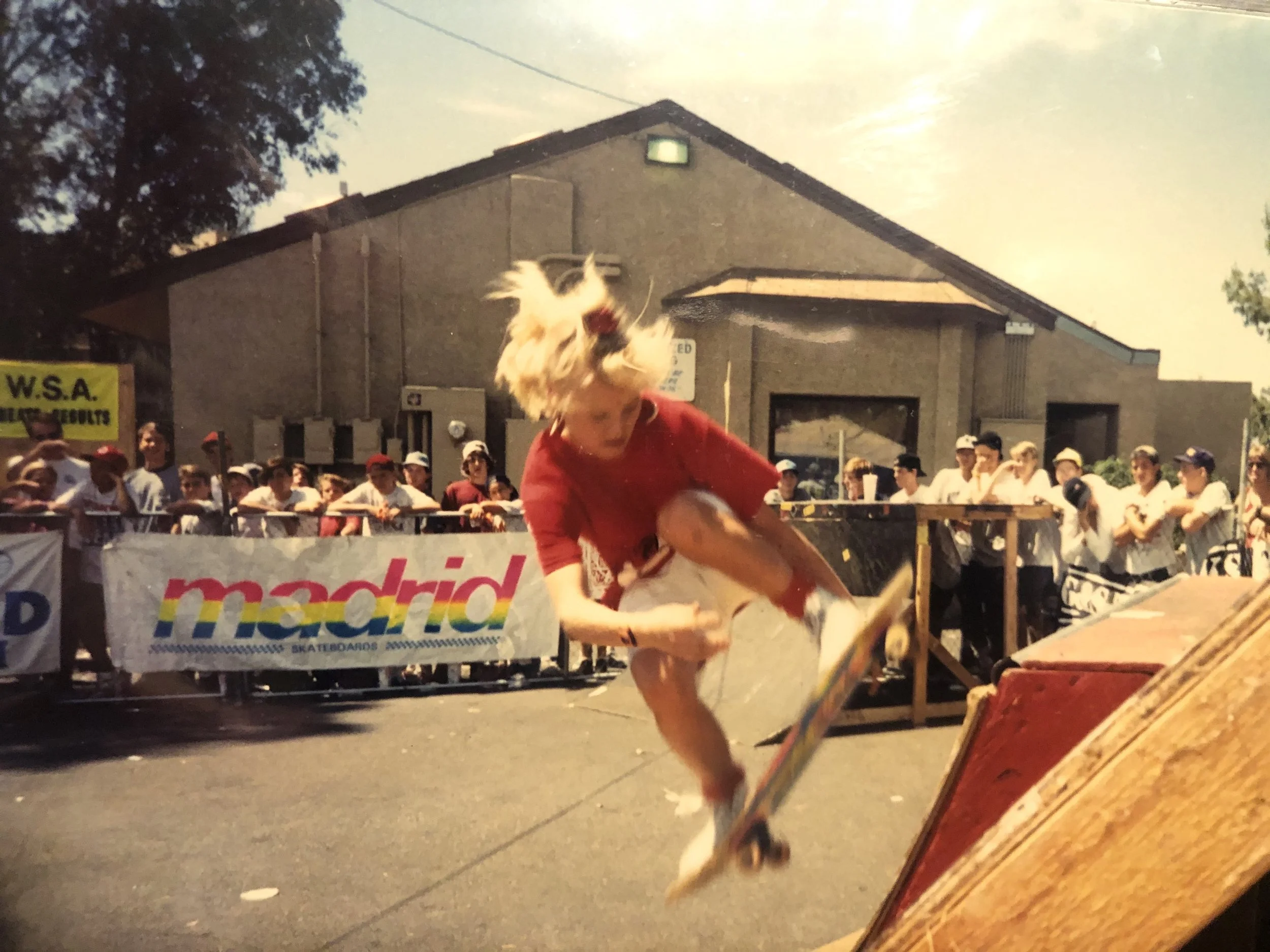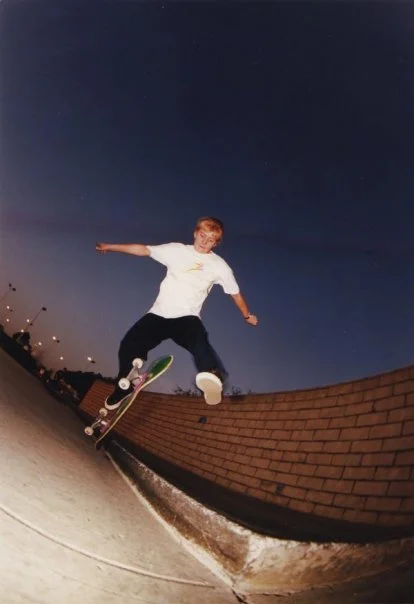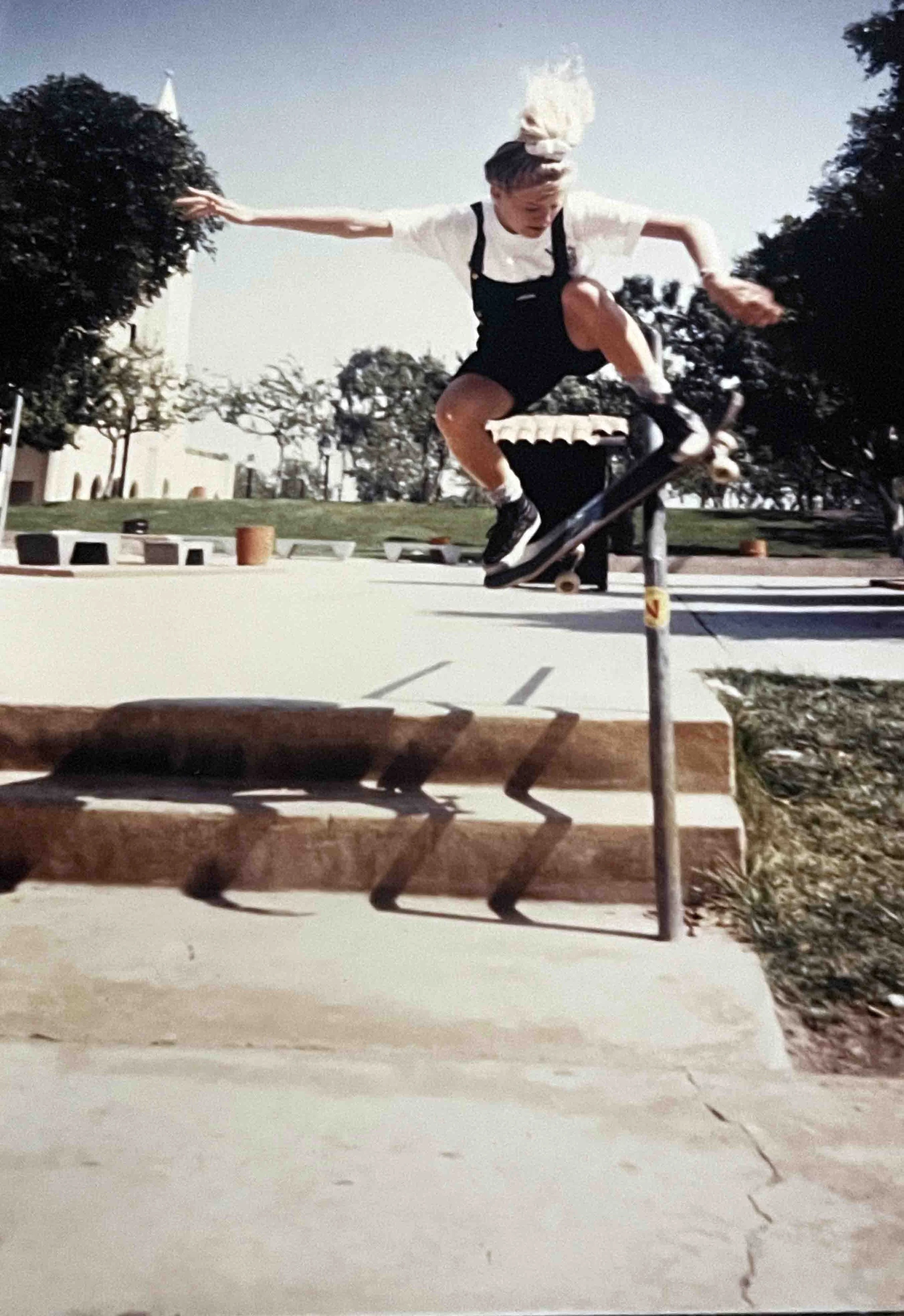You Need to Know Who Saecha Clarke Is
Words by Josh Sabini
Every so often I’d see a video pop up of a girl with a blonde ponytail skating on what I thought was an early 90’s World Industries board, but after this interview I’ve realized it was probably an Arise board. It was such a fun edit to watch, leading me to wonder who its mysterious subject, named Saecha in the clip, was. I don’t even think the video had her last name anywhere. I’d see old photos of her here and there – her Venture ad (see below) was one of them, a boardslide down a handrail. The first woman to ever do so. It was obvious she was around in the early 90’s and that she skated for World Industries, but where she went and who she was seemed a mystery.
Earlier in the year, Bobby Puleo posted a few photos of Saecha alongside that clip of her skating around her hometown of Huntington Beach on Instagram with a caption about how he had no idea of Saecha’s existence. Seeing that made me want to know more about Saecha – knowing she had a story in need of being told, I reached out to her. What follows is an interview about her life in skateboarding, from growing up in the skate Mecca that was Huntington Beach in the late 80s and early 90s, skating for World Industries, boardsliding a handrail, and her life now as an apparel designer.
Thank you so much again for doing this, Saecha. To start, I’m really curious: how did you start skateboarding?
My dad grew up surfing and had an old 70's fiberglass skateboard in our garage. He would show my brother and I how he could do 360's on it. My brother and I used to take turns and try to do as many 360's as we could. It wasn't until I was in 6th grade that I really started skating. There was a crew of kids from my school that lived in my neighborhood and they would always skate this dirt bank in front of my house. I used to watch them skate and as soon as they left I would grab my brother's board and go try to skate and learn the tricks I saw them doing. I skated this bank in front of my house everyday after school until I eventually learned how to carve and ride up the bank and then do a kickturn on it. From there I remember spending a lot of time trying to learn how to ollie and then eventually learned to ollie onto a curb and then up a curb. I just kept trying to learn new stuff, and eventually got my parents to get me my own board so I wasn’t always borrowing my brother’s board.
What was it like growing up skateboarding at the time?
I have nothing but fond memories growing up skating at that time. I think skateboarding was really different back then. For me personally, skateboarding was about having fun. I really didn't know what was up. I just thought skateboarding was cool and fun. Growing up in Huntington Beach at that time there was a huge skate scene as well. There weren’t a lot of skateparks at that time at all: skateboarding was a bust, and you would often get kicked out of everywhere you went. A lot of people came from out of town to skate in Huntington Beach, so it might have made Huntington more of a bust than it should have been. Skaters were definitely viewed as criminals who were defacing and ruining city property. I think skateboarding has a bit of a rebellious nature to it from that perspective. I even got arrested once skating Huntington High. For the most part we would skate schools, parking lots, curbs, ledges, parking garages, and shopping centers. Pretty much the same stuff as today, minus all the skateparks.
One of my best memories of skating and growing up was this spot called Pay N' Play. It was a small recreation center across from Huntington High. On weekend nights skaters would come from all over the place to skate together. People would bring their launch ramps, bank ramps, slider bars and set them up on the basketball courts and everyone would skate. Some weekends so many people would show up it was almost like a giant unorganized contest. It was a lot of fun and holds some special memories for me. Huntington High was another skate spot that was really popular back then. There was always a crew of locals at the high school on any given day. The high school was cool because a lot of visiting pros and sponsored ams would often show up and skate there too.
Anita Tessonsohn, Saecha, and Deanna Templeton.
That sounds like such a good time. What did your crew look like as a kid?
I used to skate with everyone. Most of the people I grew up skating with went to the same school or nearby schools. We had a big crew of local skaters in Huntington that I grew up with. Guys like Erik Estrada, Jake Burns, Jose Cerda, Ed Templeton, Jamie Hart, Justin Regan, Bill King, Kele Rosecrans, Skip Pronier, Aaron Devine, Edwin Caranguy, Jason Lee, Steve Robert, Micah Panzich, and Jason Dill. It was really a big crew of skate groms who used to hang out at Huntington High and Gremic Skates everyday. Those are just some of the people off the top of my head I can think of that were apart of the Huntington skate scene that I grew up with. I used to skate with anyone who wanted to go skating.
Were you skating in CASL contests?
Yeah, CASL contests were big back then. I always enjoyed going to CASL contests because they were fun and seemed more like big skate sessions with friends. To me CASL contests were a chance to get together with others and skate a street course or stuff made for skateboarding. I would always look forward to going to any contests I could. My mom and dad were super supportive of my skating and would take me to most of the big CASL contests.
I found an old interview with you from 1990 and you were asked if you thought there should be girl’s divisions in contests and you were strongly against it. How do you feel about that now?
At that time there weren’t a lot of girl street skaters that even showed up to enter contests. I felt that having a contest between two or three girls was not much of a contest. Often no girls would show up at all to contests. Sonja Catalano, one of the CASL contest organizers, would end up putting me in with the guys division. The guys division was always full and had a ton of people in it. It seemed like way more of a contest to me. I preferred getting a chance to skate against the boys anyway. I had more fun and liked to see how well I could do against the boys. As far as how I feel about it now, there are a ton of girl skaters and a lot has changed. I think it makes sense to have a girls division now.
For sure, that makes a lot of sense. Eventually, you got sponsored, who was your first sponsor?
When I first started skating I used to get flowed boards from John Lucero, he lived in my neighborhood and gave me a couple boards. I wasn't sponsored or anything, he just hooked me up. John rode for Schmitt Stix at the time and those were the best boards back then. I’ve always loved Lucero's graphics too. My first actual sponsor was a Christian board company. I met a freestyle skater named Andre Walton who rode for Vision at the time. He started his own Christian ministry and board company called Arise Skates and asked me if I wanted to ride for his company. Andre gave me boards and the opportunity to be apart of his Christian ministry. We got to travel and go on a lot of skate trips and do demo's and meet a lot of great people at that time, so I was super down.
How long after that did you get on World Industries?
I think it was about a year later that I got sponsored by World.
How did getting on World happen?
It was at a Zimbabwe contest in Long Beach in 1988 when I met Steve Rocco. I entered the girls division and skated pretty well. I ended up getting 2nd place out of 3 girls. I did the contest handrail, but bailed in my run. I think doing the contest handrail is what got me noticed by Rocco. I grew up skating with Jason Lee and he knew Steve Rocco. Jason told me Rocco wanted to meet me and wanted me to ride for Word. I got on World through Jason.
What was it like being on World at its peak?
I feel like it is every skater's dream to get sponsored and get free boards and gear, especially to get the opportunity or chance to ride for World Industries. It didn’t even seem real. Even today, I look back and think about it and it seems surreal to me. It seemed like the best skate brand to be a part of at that time. I remember all the skate graphics and product back then was so cool! I remember getting my first package sent to my house and how psyched I was. To me the World team seemed like the new up and coming kids on the street. I felt pretty lucky to ride for World.
I think any time you’re surrounded with people who are exceptionally qualified or skilled in any expertise ,it really pushes you to grow your own skills. Being on a team with a lot of exceptional skaters really pushed me to try to skate better. I think that was the coolest part about riding for World was getting to skate with some of the World and Blind team guys at that time.
At that time ,the World team seemed like a bunch of crazy teenage boys. What was it like being a woman in that environment?
I was already skating with boys most of the time so it wasn’t really a change in environment for me. From what I remember, everyone on the team was always really cool and respectful. From my experience, I think there has always been a certain level of hijinx or shenanigans and pranks that surrounds skateboarding. I was never around anything too crazy or wild. We were just skating and having fun.
You have said in the past that you wished that you filmed for Rubbish Heap. Was that something you knew everyone was filming for or did it just happen?
I knew they were filming. They asked me to film at Huntington High. I don't know why I didn't. I was just being weird and shy I guess.
Were you also working behind the scenes at World?
No, I never worked at World. My friend Anita Tessonsohn worked at World, but she rode for Powell Peralta. She had a part in the Powell Peralta video. I used to love her part and all the old Powell videos so much. It was really cool I got to meet Anita through World and skate with her. She was one of the few girl street skaters I knew. I would get rides up to World in Torrance on the weekends and stay at her house sometimes and go on skate missions with her and her friends.
The Venture ad mentioned earlier in this piece, complete with misspelling.
Around that time, you had the Venture ad of you boardsliding the handrail. They spelled your name wrong in your ad. How did you feel about that?
I don't care. I have spent my entire life with teachers and everyone mispronouncing and misspelling my name. It's a different name and people have always had trouble with it. It doesn't matter. People that know me still say my name wrong sometimes. It's actually kind of funny. I think how my name visually looks and spelled is different from how it phonetically sounds. It has happened for so long I am used to people getting it wrong I guess.
That ad also had the words “sugar and spice” on it, did you think it was patronizing having them put that on the ad?
Not really patronizing. I definitely remember feeling funny about it. More or less because I have always been super shy and didn’t want to attract any attention to myself. At that time, I was just skating and trying to learn new things. Most of all I wanted to be good like all the guys I was skating with. I feel like in terms of my skating in that era, with the lack of women skaters in the late 80's & early 90's, I feel like it was par for the course. People made a big deal about women in skateboarding because there weren’t a lot of them at that time. I think about it now and I’m thankful for any support I got as a skateboarder from all of my sponsors, friends, and family.
You never ended up turning pro, was turning pro something that you wanted to happen?
I don't think I ever thought about it too much. I was so happy just to be sponsored and getting free skateboards and gear and skating every day.
Was there any talk of you ever turning pro?
When Mark Gonzales left Blind he started his own company…this was so long ago, I can't remember if it was ATM Click or 60/40 that he was doing at the time. Mark asked me to go pro for his company, and he had a funny idea for a sequence ad. Mark used to mess around a lot so I don't know if he was even serious. He could have just been messing with me. He wanted me to dress up in high heels and a skirt and ollie up to a super gnarly long handrail in L.A. It was some handrail way too gnarly for me to do. I told him there was no way I could do that handrail and he said all I had to do is ollie up to it and I could bail. He said he would dress up like me in a wig, high heels and would wear a skirt to look like me and finish the handrail for the sequence ad. I think he thought it would be a funny ad. The whole idea seemed crazy to me. I completely vetoed the idea. I felt like there was a professional bar or level you should achieve to go pro. I never thought my skating or I was good enough, and didn’t want to insult my peers or any skaters for that matter. The idea Mark had for the sequence ad would have been funny at that time. I would love a guest board now though.
What made you want to step away from skateboarding?
I don’t think I ever necessarily wanted to step away from skateboarding. Unfortunately, I think it just happened naturally after I had a pretty bad knee injury and started college. My knee injury had a lot to do with it. I kept hurting my knee. I tore my anterior crucial ligament and meniscus cartilage in my knee. The doctors told me it was a bucket handle tear, meaning one side was completely torn off. If you can imagine a torn bucket handle attached at one side only. I had orthoscopic surgery and rehabilitated it with a lot of therapy. I skated with a big, clunky knee brace for support that really sucked. I kept re-injuring it and eventually re-tore it again. I would have to go to the doctor and they would stick a gigantic needle in my knee and drain the blood and yucky stuff to reduce the swelling. It was really gnarly. I felt like it prevented me from having fun and progressing. In ‘92 I graduated high school and got a job, and started going to college. I started to become interested in clothing and fashion design and started pursuing an education and a career in that direction.
How was it stepping away from the industry?
I was still skating when I could, but I was pretty busy with school and work.
I continued to work around the skateboard industry while going to school. I worked at a skate shop called Marge’s' for a bit, and then got a job working at Sole Technology. I got the opportunity to work in the apparel department as a design assistant and learned a bunch. Eventually, I got the opportunity to start designing Emerica apparel. Another design opportunity opened up and I was given the opportunity to design for Altamont. Even though I wasn’t skating, I was very much still involved with the product side of skateboarding and the skate industry. I always loved all the skate product and brands that I grew up with from the late 80's and early 90's, from the ads to the actual product, boards graphics, clothing, and even stickers. I’ve always loved all that stuff. I think skateboarding has exposed me to so much rad stuff. In a way, I feel like skateboarding led to my interest in apparel design. I’ve worked outside of the skate industry in mens high fashion and other markets over the years ,but a bulk of my experience has been in the skate industry. To this day, I’ve continued to work around the skating industry pretty much all my adult life.
What has it been like to see the recent increase of women becoming involved in skateboarding?
I trip out on it sometimes. It's definitely interesting to see how things have changed so much and so quickly. Women's skating has progressed so much, it’s pretty mind blowing for me to see all the changes to be honest. Girls are so good now! It's also amazing to see the greater presence of women in skateboarding and the increased coverage in the media and skate magazines today. There are women making careers and money from skateboarding and competing in the Olympics. Women's skating has come a long way and skateboarding in general. I think the female skaters of today have kind of made a huge impact on skateboarding. It's rad to see.
Do you ever feel like you’ve had an impact on skateboarding?
Not really. There are so many amazing female skaters who have had a big impact on skateboarding. I’m not sure I feel like I have had any big impact on skateboarding like the way many of the female skaters today have.
Do you wish that skateboarding was more similar to how it is now while you were growing up?
While there is a greater presence of women in skateboarding today and skateparks everywhere, I really liked the era I grew up in skating. I think it was such a cool time in street skating in general. Skateboarding is cool now in different ways. Ultimately, I’m happy to have grown up and skated when I did.
From your Instagram it seems like you’re still really interested in skateboarding. Are you keeping up to date with what’s going on?
Yeah, I’m still really interested in skating. I think skateboarding will always interest and inspire me. I keep up as much as I can.
Are you still skating now?
Occasionally I will jump on my board. I still have fun rolling around from time to time. I need a whole new set up though. I think I want some really soft wheels and a new cruiser board.
What does your day-to-day life look like now?
Work and family home life for the most part with Shiloh (Greathouse, her partner). I‘ve been doing freelance apparel design from home now for years. Working from home has allowed me to help out with Shiloh’s daughter’s homeschooling needs. We also spend a lot of time at the beach when we can. We like to boat, fish, and surf a lot in the summer too.






